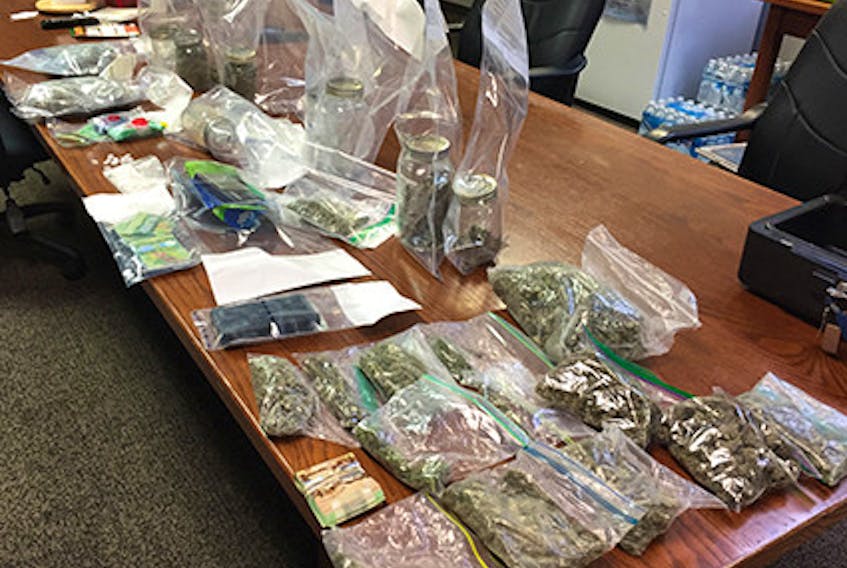BY SYLVAIN CHARLEBOIS
GUEST OPINION
On Oct. 17, smoking cannabis will become legal in Canada. Cannabis edibles, on the other hand, will be legal in a little less than a year.
Once cannabis-infused food products are available, things will get complicated in Canada's food industry.
Initially, the cannabis legislation, Bill C-45, didn't include edibles. It was only last fall that the parliamentary health committee decided that edibles would need to be included if the country was going to adopt a comprehensive approach to legalized cannabis.
According to a recently-published survey from Dalhousie University, 93 per cent of those favouring legalization of marijuana are also very likely to try at least an edible product. Recognizing this possibility, the parliamentary committee approved a neat little amendment and edibles became part of the package.
RELATED: From marijuana beer to pot cookies, Canadian companies creating cannabis edibles
Canada's food industry is a $200-billion sector. It's a massive portion of our economy, split into multiple streams. Food retailing, food service, delivery, food trucks, institutional services, arenas, stadiums - there are channels of distribution everywhere and food can get to wherever you are.
In less than a year, this will include cannabis - except that, unlike the smokable version, edibles can be consumed by anyone without those around them knowing. It's discrete, convenient - and potentially dangerous.
Health Canada was caught by surprise by the addition of edibles and is still trying to come up with a regulatory framework. Many questions linger about the distinct dangers that edibles pose, particularly for children. Food companies are notoriously paranoid about food-safety issues, since they're always just one recall, outbreak or tragic incident away from closing their doors.
It's critical that a regulatory framework be put in place. That would include proper labelling of edibles, complete with THC content and intoxicant warnings, to assure the public and industry that edibles and humans can co-exist safely.
With adequate safety measures, edibles present a hugely profitable opportunity for the Canadian food industry. No one really knows what the market potential is for cannabis, much less for edibles, but growth opportunities are palpable.
Growth is what the food industry needs right now. The more consumers are exposed to cannabis, the more they will opt for the edible version.
Edibles also stand to shake up current players in the food sector. For example, people may choose cannabis more often than a drink or two, and thus disrupt the alcohol industry. We could see some consumers substituting their usual wine, beer or spirits for a cannabis-infused spaghetti sauce, or even cannabis oil. Or perhaps some will opt for a pot muffin or brownie.
In fact, many wine producers are concerned about what a mature cannabis market will look like. For Ontario, British Columbia and Nova Scotia - where the wine industry flourishes - this could be a problem. We're already seeing cannabis beer being launched in different places in the country.
But it's not just alcohol that's susceptible, since edibles can take many different forms: Candies are the leading cannabis food product sold in the United States.
It will be interesting to see how branding strategies align with cannabis. Some people will choose cannabis to get high but not everyone. Beyond the psychoactive effects of cannabis, there's also the possibility of pitching it as a superfood. The cannabis plant is full of nutritional value. It contains protein, carbohydrates, insoluble fibre, potassium, magnesium, sulphur, calcium, iron, zinc, vitamins E and C, and many other elements considered beneficial for human health. For food manufacturers looking for a new value-added feature, cannabis could be the next omega-3 or probiotic.
Almost 20 per cent of the food processing companies surveyed are either in the edibles market or intend to enter the market within a year.
With legalization, the stigma of cannabis will eventually disappear. But it will take a while. The food industry is known to be extremely risk averse and it won't be any different toward cannabis.
Until the industry knows the consumer is ready, cannabis edibles will stay on the sidelines. But that likely won't last long.
- Sylvain Charlebois is dean of the Faculty of Management and a professor in the Faculty of Agriculture at Dalhousie University; and senior fellow with the Atlantic Institute for Market Studies.









